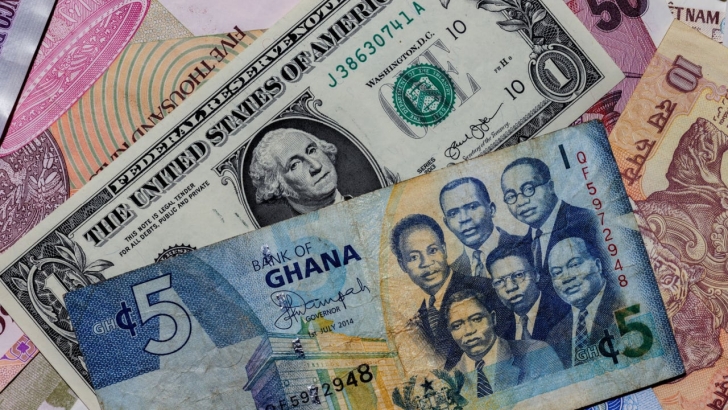Ghana’s cedi has staged a remarkable rebound in 2025, posting its strongest performance in years against the country’s top trading currencies.
According to the Bank of Ghana’s May 2025 Summary of Economic and Financial Data, the cedi has appreciated by 24.1 per cent against the US dollar, 16.2 per cent against the British pound, and 14.1 per cent against the euro as of April.
This development marks a dramatic shift from the depreciation trend that characterised much of 2023 and 2024.
📈🇬🇭 Ghana Cedi Roars Back to Life!
From sharp declines in September 2024 to a stunning comeback in May 2025, the cedi is rewriting the script:
💵 US Dollar ($): GH₵15.8 ➡ GH₵11.8
💷 Pound (£) : GH₵21.8 ➡ GH₵15.8
💶 Euro (€): GH₵17.6 ➡ GH₵13.3Source: Bank of Ghana’s May 2025 Summary of Economic and Financial Data
The local currency, which traded at GH₵15.53 to the dollar in March, strengthened to GH₵11.85 by April 2025. Similarly, it appreciated from GH₵20.09 to GH₵15.84 against the pound and from GH₵16.81 to GH₵13.34 against the euro over the same period.
Analysts attribute the turnaround to improved macroeconomic management, rising investor confidence, and the repeal of the Electronic Transaction Levy (E-Levy), which has spurred growth in electronic financial transactions. Additionally, stronger foreign exchange inflows from increased exports and remittances have helped ease pressure on the cedi.
The central bank’s data shows that the real effective exchange rate index has also declined, signalling increased competitiveness of Ghana’s exports. The cedi’s current trajectory, if sustained, could ease inflationary pressures and reduce the cost of servicing foreign-denominated debt.
Despite the strong cedi, Ghana’s total public debt stock inched up slightly to $49.5 billion in March 2025, up from $49.4 billion in February. In local currency terms, public debt stood at GH₵769.4 billion, representing 55% of GDP.
With the cedi gaining ground and inflation easing to 21.2 per cent in April, the economic outlook appears more stable than in previous quarters. However, experts caution that sustained gains will depend on maintaining fiscal discipline and managing external shocks.
